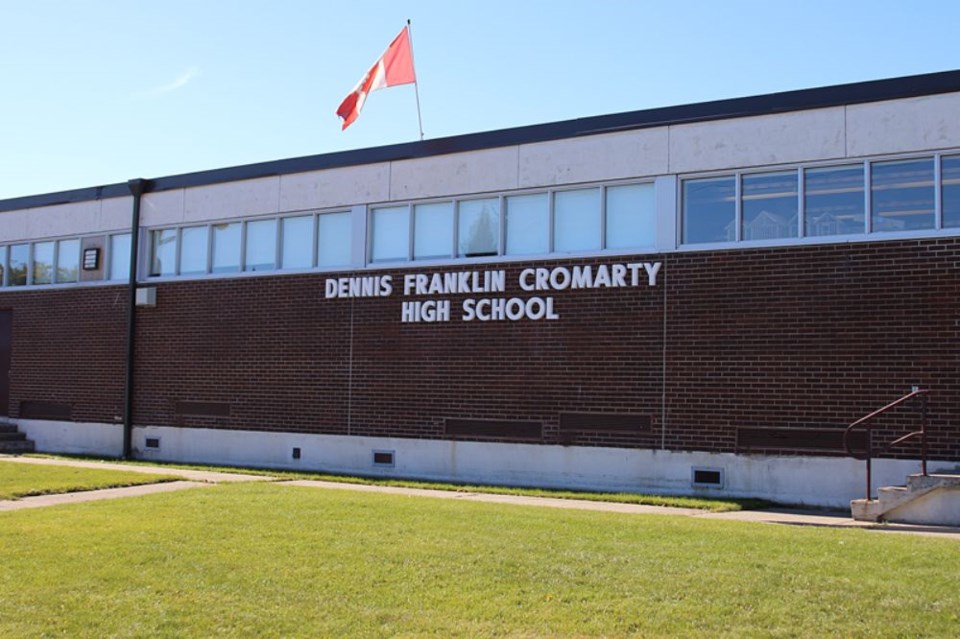THUNDER BAY – The third day of the inquest into the deaths of seven First Nations students focused squarely on the reason why they left their remote reserves to come to Thunder Bay.
The coroner’s inquest into the deaths of Jethro Anderson, Curran Strang, Paul Panacheese, Robyn Harper, Reggie Bushie, Kyle Morriseau and Jordan Wabasse continued on Wednesday as the five jury members, as well as the parties with standing, toured Dennis Franklin Cromarty High School, where six of the students attended.
Anderson, Strang, Panacheese, Harper, Bushie and Morriseau were students at the high school between 2000 and 2009. Wabasse, who died in 2011, was taking courses through the Matawa Learning Centre.
Earlier in the day DFC principal Jonathan Kakegamic took the stand and became emotional when recalling the times when those six students died.
Note: You will need either Internet Explorer or Mozilla Firefox to see the live feed.
“Back at the time we were losing students it was difficult,” he said as he began to cry.
Kakegamic was asked a number of questions about DFC and how it was different from other high schools.
He explained the extraordinary responsibility school administration and staff members face on a daily basis.
“As a principal of that school I don’t think it compares well to what other schools can offer. There’s a difference when you’re looking after your own. It’s powerful when the chiefs give you that mandate,” he said.
“Our staff go above and beyond. As a principal, my job isn’t 9 to 5. I’m on the clock until they go home with me and I can say that for all my staff at the school.”
The workers inside the school have to fill the void of parents and family who aren’t in Thunder Bay to support the teenagers.
“Knowing the parents aren’t there each day to talk around the kitchen table for supper time talk, I’m sure all of you grew up with the kitchen at supper time when everybody asked how everyone was doing and small talk, we take that on,” Kakegamic said.
“You’ll see our teachers interacting with our students. If you come at lunch time you won’t see our teachers in the staff room. They’ll be throughout the school…eating with our students.”
He also talked about the maturity of many of the students, including some that have to spend more than an hour on a city bus every day to get to and from the school.
It’s easy for the students to decide not to come to school.
“Our students can walk one block from our school and we can’t see them,” he said.
“A lot of our students, it’s basically their own choice to come to school every day. They stay in boarding homes throughout the city and the boarding parents every morning tell them to go to school. Our students have a choice, they can either go to school or go hang out at the mall. The majority of them come to school, which is amazing.”
The inquest also heard from Northern Nishnawbe Education Council director Norma Kejick, who explained the state of education in many Northwestern Ontario First Nations, where the few high schools only go as far as Grade 10.
The Northern Nishnawbe Education Council administers both DFC as well as Pelican Falls First Nation High School near Sioux Lookout.
